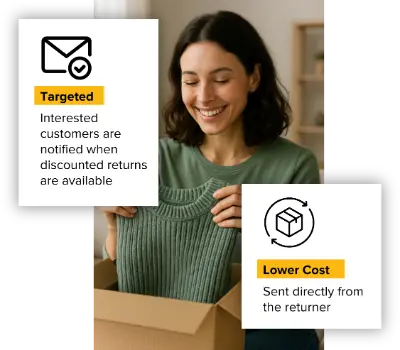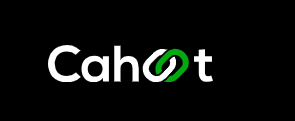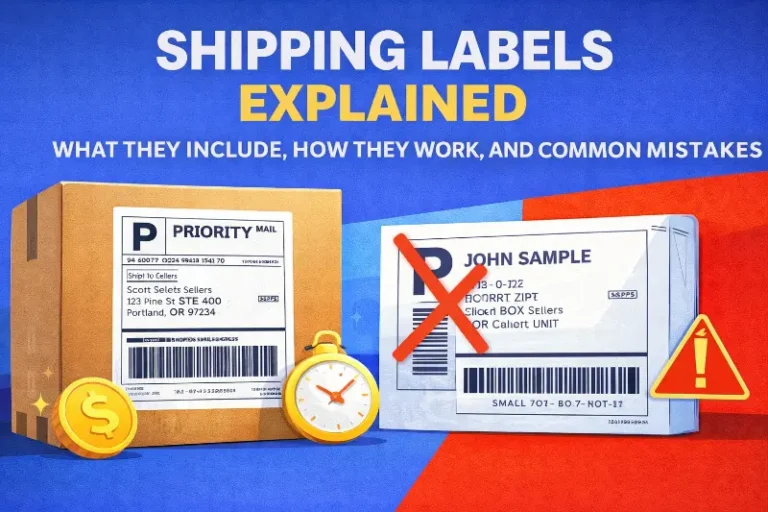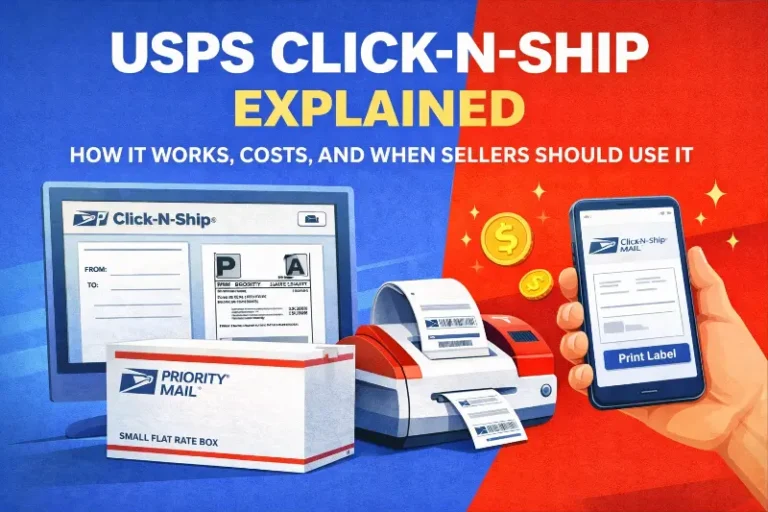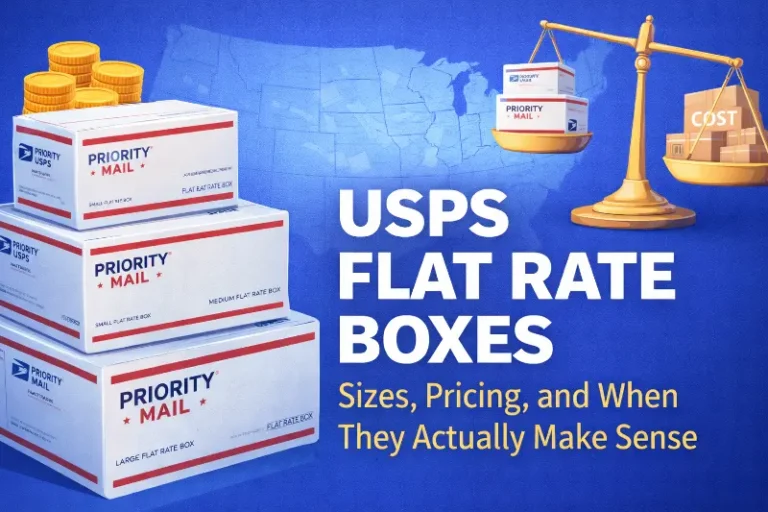Using Rithum to Optimize Multi-Channel Fulfillment and Dropshipping

Last updated on June 30, 2025
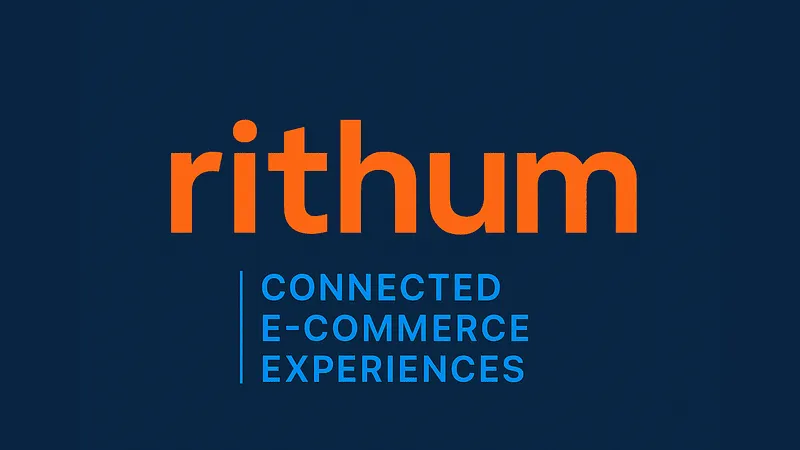
In this article
 9 minutes
9 minutes
- What Is Rithum?
- Rithum at a Glance
- Core Capabilities: Rithum Modules Explained
- Why Rithum Matters for Modern Commerce
- Use Case: A Dropshipping Brand Using Rithum
- Brands and Retailers Benefiting from Rithum
- Challenges to Be Aware Of
- How Rithum Compares to Other Platforms
- Where Cahoot Fits In
- Final Thoughts
- Frequently Asked Questions
Rithum isn’t just a rebrand, it’s a reinvention. Born from the merger of ChannelAdvisor, CommerceHub, and DSCO, Rithum is now one of the most powerful platforms for brands, retailers, and suppliers navigating the connected ecommerce world. According to Rithum’s CEO, the rebrand marks the beginning of a new era focused on innovation, growth, and supporting customers at every stage of their journey. With over $50 billion in GMV flowing through its pipelines annually, Rithum is quietly powering some of the world’s greatest brands, and making optimized consumer shopping journeys feel seamless.
If your ecommerce strategy includes multi-channel order fulfillment, dropshipping, and scalable growth, Rithum might be the platform you didn’t know you needed. Rithum supports businesses from the very beginning of their ecommerce journey, streamlining onboarding and initial setup to ensure a smooth start.
What Is Rithum?
Rithum is a multi-module platform focused on creating connected ecommerce experiences. It brings together marketing, commerce, delivery, and discovery into one scalable solution, helping brands and retailers operate more efficiently across marketplaces, DTC sites, retail media networks, and fulfillment channels. Rithum is designed to help launch, manage, and grow any type of ecommerce business, supporting the entire commerce operation from inventory management to multi-channel sales.
In other words, Rithum gives you the tools to grow sales, manage inventory, expand fulfillment, automate operations, and scale, all from a centralized command center. It’s built for the brands, retailers, and suppliers who want to stop juggling disconnected systems and finally integrate everything, supporting users every step of the way as they integrate their systems.
Slash Your Fulfillment Costs by Up to 30%
Cut shipping expenses by 30% and boost profit with Cahoot's AI-optimized fulfillment services and modern tech —no overheads and no humans required!
I'm Interested in Saving Time and MoneyRithum at a Glance
- Annual GMV: $50+ billion
- Order Volume: Over 400 million orders processed per year
- Products Listed: 2.4 billion+ SKUs across 420+ channels
- Customer Base: 40,000+ companies, including major global retailers and niche DTC brands
- Trusted by the industry’s leading retailers and brands: Rithum supports the growth and profitability of retailers and brands across the ecommerce ecosystem.
- Legacy: Combines the capabilities of ChannelAdvisor, CommerceHub, DSCO, Cadeera, and more
That’s not just a lot of scale, it’s a lot of trust. Rithum powers commerce infrastructure for companies ranging from Fortune 500 retailers to fast-growing ecommerce entrepreneurs. As the industry’s most trusted commerce platform, Rithum delivers comprehensive solutions for retailers and brands navigating today’s market challenges.
Core Capabilities: Rithum Modules Explained
Rithum’s strength lies in its modular architecture. Businesses can tap into one, two, or all four of the core modules depending on their needs. Rithum supports businesses at every step, whether they choose a single module or implement the full suite, ensuring a smooth progression through each stage of their journey.
1. Commerce Solutions
This is the backbone. Rithum enables sellers to list products across hundreds of marketplaces, websites, social platforms, and retail sites, streamlining data sync, inventory updates, and pricing strategies.
Whether it’s Amazon, Walmart, Target Plus, Zalando, or your own Shopify site, Rithum’s software lets you manage product listings from one place. You can push updates to every sales channel instantly and reduce the lag that costs time, money, and customers.
2. Marketing Solutions
Rithum helps brands drive performance across paid search, social ads, and retail media networks. Think: Google Shopping, Meta Ads, Instacart, Criteo, Roundel, CitrusAd, you name it.
You can create optimized campaigns directly inside Rithum’s platform and integrate with leading analytics tools to tie ad spend to order fulfillment and margin impact. This means tighter control over ROAS, and faster decisions on what’s working and what isn’t.
3. Delivery Solutions
Order fulfillment isn’t just about speed, it’s about flexibility. Rithum’s delivery solutions automate routing based on inventory availability, warehouse proximity, shipping method, and cost-efficiency. This includes direct-to-consumer fulfillment, third-party logistics (3PL), and dropshipping.
Even better, Rithum integrates with Amazon MCF (Multi-Channel Fulfillment), letting brands use Amazon’s fulfillment infrastructure for non-Amazon orders. This creates margin advantages without the overhead of managing your own warehouses (though it’s quite a bit more expensive than outsourcing to 3PLs).
4. Discovery Solutions
Using AI and behavioral data, Rithum identifies top-performing suppliers, curates catalogs for buyers, and matches brands with new retail partners. This is especially powerful for B2B marketplaces and dropship networks looking to expand their assortments strategically.
The goal? Help suppliers work smarter, not harder, and give buyers access to high-margin, in-demand products without wasting time.
Why Rithum Matters for Modern Commerce
Let’s face it: managing ecommerce operations across 10+ sales channels is chaos without a platform like Rithum. The industry’s top brands use Rithum to automate, integrate, and grow. Here’s how:
1. Unified Inventory Management
Forget spreadsheets. Rithum provides real-time inventory visibility across all your selling channels. This helps reduce stockouts, improve fill rates, and prevent costly overselling.
2. Streamlined Order Fulfillment
Orders from Amazon, Shopify, Walmart, and your DTC site all route through a single order management system. Rithum auto-selects the best fulfillment method, be it internal warehouse, dropship partner, or Amazon MCF.
3. Data-Driven Marketing
Tie your product data to your ad performance. Rithum’s platform ensures that your marketing campaigns reflect inventory levels, promotions, seasonal trends, and shipping timelines.
4. Optimized Margins at Scale
One of the most underrated advantages of using Rithum is margin optimization. By automating fulfillment and identifying cost-saving delivery solutions, you increase profit per unit while maintaining fast delivery speeds.
5. Powerful Integrations
Rithum offers prebuilt connections with all major ecommerce platforms, marketplaces, and ERPs. Whether you’re using NetSuite, BigCommerce, Adobe Commerce, or Salesforce Commerce Cloud, Rithum plays nicely in the sandbox.
Looking for a New 3PL? Start with this Free RFP Template
Cut weeks off your selection process. Avoid pitfalls. Get the only 3PL RFP checklist built for ecommerce brands, absolutely free.
Get My Free 3PL RFPUse Case: A Dropshipping Brand Using Rithum
Let’s walk through a simplified scenario:
1. A brand lists 10,000 SKUs using Rithum’s commerce solution.
2. Rithum syndicates those listings to Amazon, Walmart, and a DTC site.
3. Inventory levels sync across platforms in real-time.
4. Orders start coming in from all channels.
5. Rithum routes the orders to a mix of 3PL warehouses and dropship suppliers based on margin and speed.
6. The marketing team uses Rithum’s tools to launch ad campaigns based on best-sellers and restock timelines.
7. The operations team reviews delivery metrics and margin performance using Rithum’s dashboard.
8. The brand expands to a European marketplace, using Rithum’s localization features and supplier discovery module.
Rithum enables brands, retailers, and suppliers to work together seamlessly throughout the dropshipping process, ensuring efficient collaboration and smooth order fulfillment.
From listing to delivery, everything flows through one platform, Rithum, acting as the heartbeat of your dropshipping operation and keeping every part running smoothly.
Brands and Retailers Benefiting from Rithum
Retailers like Belk used Rithum to onboard over 500,000 SKUs in under 90 days, resulting in a 36% YoY increase in GMV. Similarly, brands like Superdry and Marks & Spencer have leaned on Rithum’s marketing automation and fulfillment capabilities to grow international sales and reduce channel friction.
For smaller companies, the appeal is just as strong. Rithum lets lean ecommerce teams punch above their weight, automating order fulfillment, syncing inventory, and scaling ad campaigns without adding headcount.
Challenges to Be Aware Of
No platform is perfect. Here are a few potential drawbacks:
- Complex Onboarding: Rithum’s capabilities are powerful, but not plug-and-play. Implementation often requires a dedicated team or integration partner.
- Cost Structure: After the ChannelAdvisor/CommerceHub merger, some users reported pricing increases of 4–7x. Smaller businesses may need to weigh the ROI carefully.
- Support Transition: With consolidation comes some turbulence. Support quality can vary depending on your plan, region, and internal rep.
Still, these challenges are manageable if you’re serious about long-term scale.
How Rithum Compares to Other Platforms
|
Platform
|
Strengths
|
Weaknesses
|
|---|---|---|
|
Rithum
|
Unified commerce, delivery, marketing
|
Complex onboarding, premium cost
|
|
Zentail
|
Easy setup, automation
|
Fewer marketplaces supported
|
|
Feedonomics
|
Robust product feed optimization
|
Limited fulfillment capabilities
|
|
Skubana
|
Inventory automation
|
Light on marketing tools
|
|
Cahoot
|
Fastest fulfillment via P2P network, most profitable reverse logistics
|
Primarily focused on shipping/logistics
|
Rithum is ideal for businesses seeking an end-to-end platform that supports everything from product discovery to last-mile delivery, especially if those businesses operate across multiple sales channels and want to optimize every piece of the puzzle.
To see how Rithum can help your business, schedule a demo to view the platform in action and learn more about its features and benefits.
Scale Faster with the World’s First Peer-to-Peer Fulfillment Network
Tap into a nationwide network of high-performance partner warehouses — expand capacity, cut shipping costs, and reach customers 1–2 days faster.
Explore Fulfillment NetworkWhere Cahoot Fits In
For ecommerce sellers using Rithum but seeking faster, more cost-efficient fulfillment, Cahoot can be a perfect complement. While Rithum automates order routing and marketplace connections, Cahoot offers peer-to-peer fulfillment with 1-day ground delivery coverage across the U.S., at rates that beat most traditional 3PLs.
By integrating Cahoot into the Rithum workflow, brands can unlock smarter delivery solutions that drive higher margins and better customer experiences.
Final Thoughts
Rithum is more than just a new name; it’s a new rhythm for ecommerce. By merging legacy giants like ChannelAdvisor and CommerceHub, the Rithum platform is enabling connected ecommerce experiences at scale. With modules for commerce, marketing, delivery, and supplier discovery, it empowers brands, retailers, and suppliers to build lasting commerce businesses. Rithum also offers valuable resources to support teams and foster community within the ecommerce ecosystem.
It’s not for the faint of heart. Implementation takes planning. Costs can add up. But for ecommerce teams aiming to automate, scale, and integrate across channels, Rithum delivers.
Whether you’re launching a DTC brand, scaling a supplier network, or operating as one of the world’s greatest brands, Rithum helps create the infrastructure needed to move at speed, sell with confidence, and thrive in a fragmented retail world. Users love the seamless experience and impressive results they achieve with Rithum.
Frequently Asked Questions
What is Rithum, and what companies is it built from?
Rithum is a connected ecommerce platform formed by merging ChannelAdvisor, CommerceHub, DSCO, and other technology providers. It supports global brands, retailers, and suppliers.
How does Rithum improve order fulfillment and delivery solutions?
Rithum automates order routing across warehouses, dropship suppliers, and Amazon MCF, helping companies optimize shipping speed, cost, and customer satisfaction.
Which types of businesses should use Rithum?
Rithum is best suited for ecommerce brands, retailers, and suppliers managing sales across multiple marketplaces who need scalable software for fulfillment, marketing, and inventory.
Does Rithum offer tools for marketing and retail media?
Yes, Rithum’s marketing solutions connect directly to platforms like Google, Meta, Instacart, and retail media networks, helping businesses drive optimized consumer shopping journeys.
How does Rithum help brands expand globally?
Rithum’s commerce and discovery modules allow brands to manage listings across 420+ channels, onboard new suppliers, and localize product data to grow into new markets efficiently.
Turn Returns Into New Revenue
